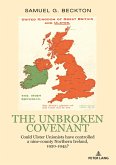During the process of European Integration, the European Union (EU) has progressively been established as a model of a "Europe without borders", in which free movement is guaranteed for its citizens. Cross-border cooperation in EU border regions has largely contributed to the implementation of this model. However, in the context of poly-crisis, where re-bordering is a frequent measure employed by EU Members States, this "Europe without borders" is largely being questioned. This publication collects the different contributions to the Jean Monnet Network "Frontières en mouvement" (Frontem) between 2019 and 2023. They critically assess five models of cross-border cooperation in Europe: the Franco-German model of European integration, the Franco-Belgian model of an open border, the model of an invisible border on the Isle of Ireland, the Danish-German model of minority management and the Hungarian-Romanian model of cooperation for Central Europe. An overall comparison to the US-Canadian border also tests the applicability of these models to other areas in the world.
Dieser Download kann aus rechtlichen Gründen nur mit Rechnungsadresse in A, D ausgeliefert werden.









